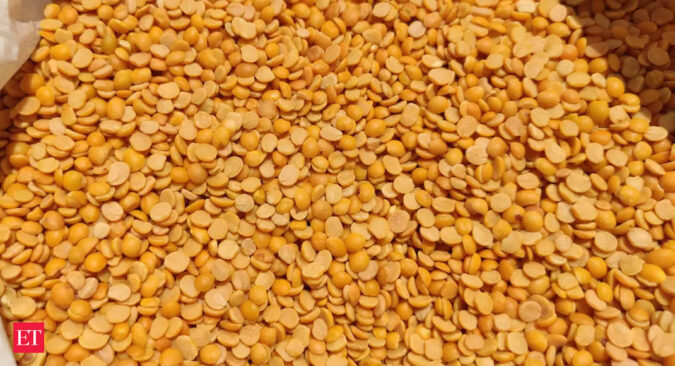As per a government estimate, India’s 2022-23 tur production should be 14% lower than the previous year. The industry expects the fall to be more than 20%.
Tur traders are of the view that reducing demand for tur by influencing a change in consumer preference is essential as not enough tur is being produced in the country to meet the demand. Traders and importers are now telling the government to start a national campaign to educate consumers about eating other pulses like chana, masur, moong and yellow peas which are available in abundance at cheaper rates.
The Indian Pulses and Grains Association (IPGA) has proposed a joint campaign with the Department of Food and Public Distribution to promote consumption of pulses like masur, moong, chana and yellow peas as an alternative to tur.
According to data with Agmarknet, the average price of unprocessed tur at the Latur wholesale market in Maharashtra has jumped to Rs 90/kg on Wednesday from Rs 60/kg on the same date a year ago, up 50%. The prices rose by 24% in the last four months since the harvest of the new crop began in January.
“There is a sharp fall in India’s tur production, while the demand for tur is intact. In our recent meeting with the Central government, we have informed the authorities that IPGA is ready to run a campaign with the government to create awareness about other pulses, which have better or equal protein content as tur,” said Bimal Kothari, president of IPGA.
Meeting the gap in domestic demand and supply will not be possible even through imports. Outside of India, tur is available only in Myanmar and a few countries in East Africa, which grow them only for the Indian market.”It is not possible to manage supply of tur to take care of the existing demand. There are just about one lakh tonnes of tur left in Myanmar, while we can get the shipments of the tur from East Africa only in September,” said Kothari.
He said people can opt for pulses like masur, chana, yellow peas and moong, which are also available at lesser rates.
In 2010, National Agricultural Cooperative Marketing Federation of India (Nafed) had run a campaign to promote imported yellow peas as a staple pulse when there was a spike in the prices of almost all the pulses grown locally. Until then, yellow peas used to be imported to be mixed with chana to make besan (chana flour).
IPGA has also suggested that the central and the state governments should stop buying tur from the open market for supply under their welfare schemes. “Pulses, which are available in abundance and are cheaper, should be used in government welfare schemes,” said Kothari.
The African tur
The prices of tur in Africa, a major supplier of the commodity to India, have opened 25% higher in forward trade, according to traders. “The quotes for forward trade for African tur are higher by about 25% than the previous year,” said Harsha Rai, vice president (sales), Mayur Global Corporation.
The African crop, which is grown for India and is harvested in July/August, will be crucial to keep tur dal prices under check during the festival season from August to November as the country is facing a shortage of tur. Rai said, “However, as tur prices in the Indian markets moved upward last week, the forward contracts of African tur have taken a pause. Importers may prefer to wait till the harvest period, as the arrival pressure can soften the prices.”
The Indian government has already cautioned traders in Myanmar against hoarding tur and urad. It warned that it can resort to government-to-government buying if traders in Myanmar hoard pulses.
